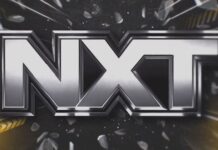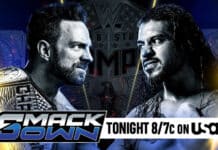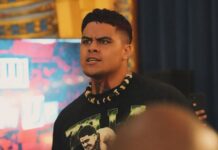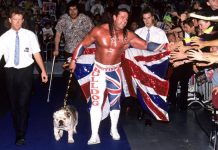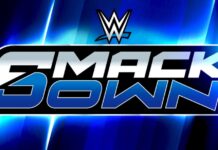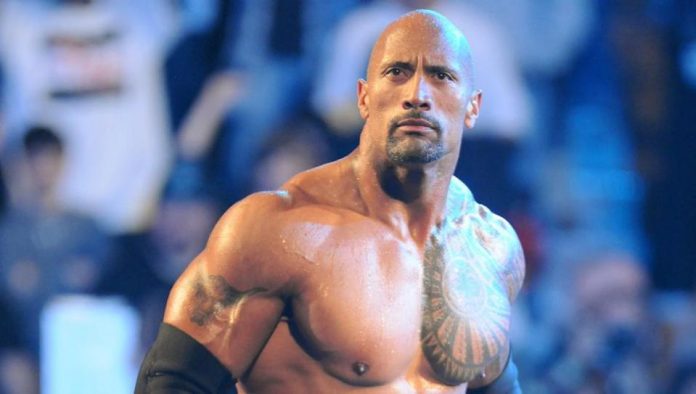
During a new Q&A session on his social media, The Rock commented on the most meaningful match of his career, and more. You can check out some highlights and a video from the Q&A below:
On the one match that means the most to him: “Of course, my very first match that I ever had as a professional wrestler in San Antonio, Texas and my last match that I had as a professional wrestler in New York City where I started my career in the WWE were very memorable. But the one match that I will always, always carry with me deep in my heart, in my bones happened in Honolulu, Hawaii. And it was the first and only time that I had ever wrestled in Hawaii. And the reason why it was so — it was not a big PPV, there were no, it was not a big television production. It was what we call a live event or a house show in the world or professional wrestling where it’s just an event.”
On why the match was so meaningful: “And the reason it meant so much to me is that we — as many of you know, I did a lot of growing up on the island of Hawaii. And when we were there, my grandparents. My grandfather, High Chief Peter Maivia was a professional wrestler. The first pro wrestler to put the island of Samoa on the map. My grandmother, Lia Maivia, was his wife. And my grandfather owned a professional wrestling promotion on the islands of Hawaii that he ran, my grandmother ran it with him. My dad and my mom helped them too as well promote this wrestling. And this was in the late ’70s when we were there. I was just a little boy. And they struggled, man. I mean my grandparents struggled, my parents struggled with this promotion. They could never get it off the ground. And all five of us lived in a little apartment on Kapiolani Blvd that’s still there today, that I always love driving by and looking up at all the memories. But Hawaii for me, the multiple times that we lived there always represented struggle, it always represented tough times. It always represented just a force of our human nature of just to grit it out and try and make it.”
On Vince McMahon asking him about a Hawaii show: “So Hawaii always represented this kind of struggle … so when Vince McMahon approached me at the height of my professional wrestling career. The first run of my professional wrestling career, and he said, ‘Hey, what do you think about going to Hawaii? Small show,’ he said. ‘You probably don’t wanna go because it’s a lot of travel.’ I said, ‘No,’ and cut him off. I said, ‘You don’t understand. It’ll be the most meaningful show of my life.’ And he kind of looked at me and said, ‘Really?’ I said, ‘Absolutely. Book it!’
On the show: “So I headline that show, we went to Hawaii. I wrestled a guy named Chris Jericho, a very good buddy of mine today. And I’ve gotta tell you guys. I’ve hard the honor and privilege, and I’ve been a lucky son of a bitch to have the career I’ve had in professional wrestling. I’ve wrestled around the world, every major arena in this country. Every major arena around the world. And the most meaningful match I’ve ever had was to go back to Hawaii at the Blazedale Center. Main event. Sold it out by the way, faster than Elvis did, I’m just saying. [laughs] … It was so special, I flew my entire family in for this because everybody knew what this moment meant including my grandmother. I flew my grandmother in, I have goosebumps right now thinking about it. She was sitting there and my music hits. ‘If you smelll!’ I come out, and I see them. I give everybody a kiss at the front row. We have our match, a phenomenal match. Chris Jericho was a great dance partner for me. And afterward I get on the mic and I think the crowd, and I let them know how meaningful this is to me and to my family. Because for years, and years and years, Hawaii just meant struggle. And so I thanked them, and what was beautiful about that night was, I have wrestled in front of some wild crowds that were on fire. And you could just feel it, it could be 50,000 people on fire and it would still feel so intimate to me, I could just reach out and make that connection. That night was special because the people of Hawaii, the culture, they all knew what it meant for me to go back.”

